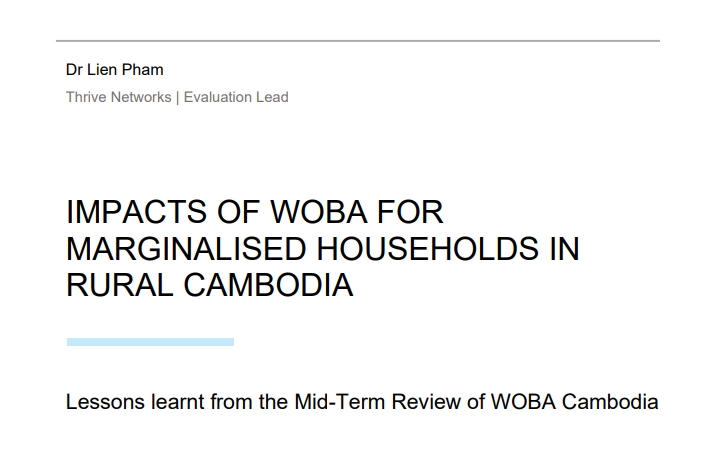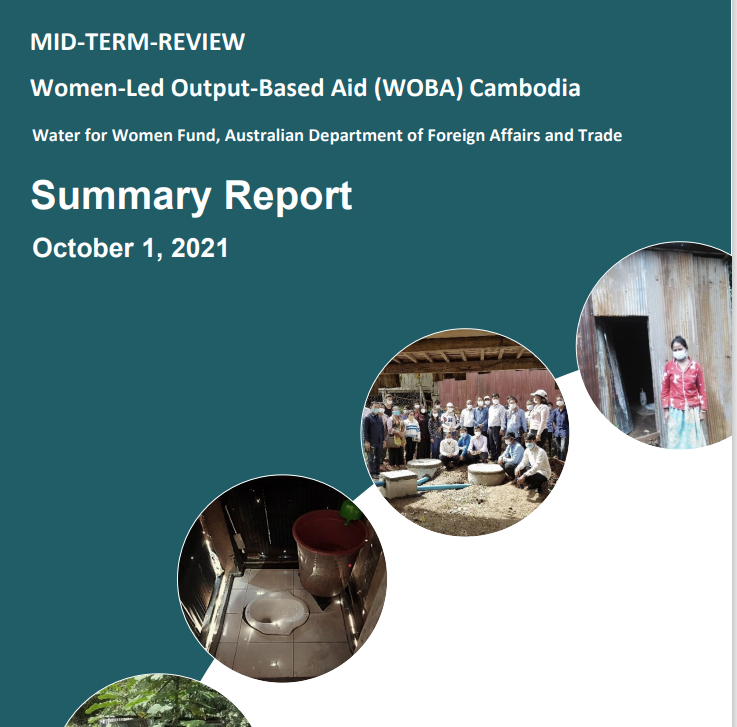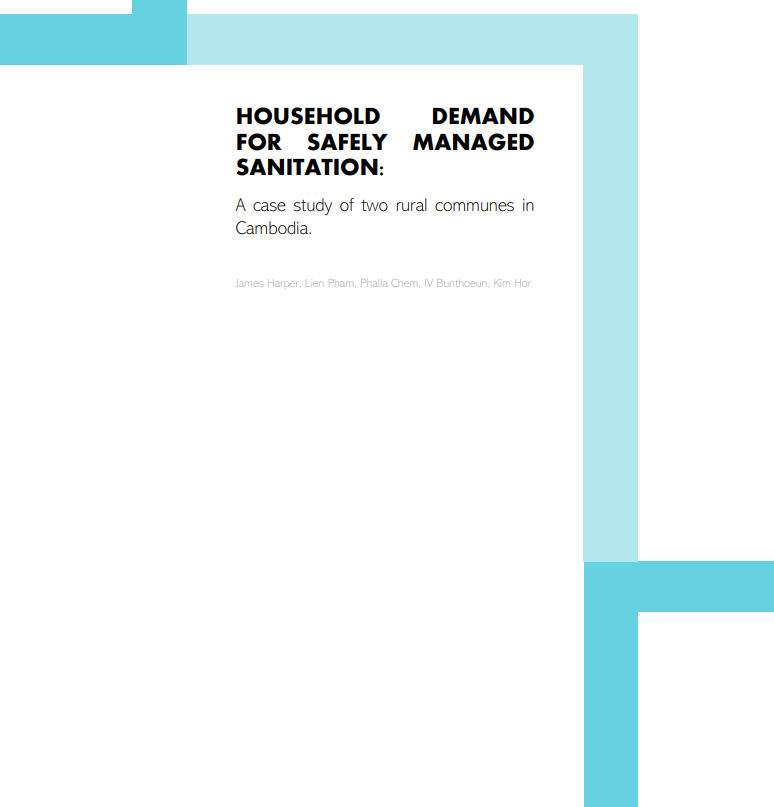WOBA Cambodia was a 4.5-year program (2018-2022) that aimed to address challenges and inequities in Cambodia's rural water, sanitation, and hygiene (WASH) sector. The program was designed and implemented by Thrive Networks/East Meets West Foundation Cambodia and was funded by the Australian Department of Foreign Affairs and Trade (DFAT) through the Water for Women Fund.
WOBA Cambodia had two key objectives:
1. Increasing access to WASH services, particularly among poor and vulnerable rural communities in Cambodia, through a subsidy payment scheme.
2. Improving gender empowerment and the inclusion of women in WASH service delivery.

-
The MERL team conducted a mid-term review of WOBA Cambodia in 2021 and an endline evaluation in 2022. The evaluations focused on evaluating various aspects of program design and achieved outcomes, with a particular emphasis on cross-cutting issues such as social impact, gender equality, results-based financing, and local government structure and governance.
-
In addition to the evaluations of the WOBA Cambodia program, the MERL team also conducted a study on the financial health risk factors for private sector WASH businesses in Cambodia's WASH markets. This study was conducted with specific reference to the nature of the WOBA project.
-
This website serves as a platform for sharing reports, policy briefs, and learning notes that were generated from the evaluation and research studies conducted by the MERL team. The aim is to disseminate the findings and recommendations that have emerged from these studies, with the goal of informing future studies and program practices related to rural development issues in Cambodia and Vietnam, especially those related to water and sanitation, gender equality, social inclusion, climate change, and community-based networks.
Publications

WOBA Cambodia Partnership Structure: Lessons learnt from the Mid-Term Evaluation
Although there are differences between provinces in terms of the partnership structure and line of a...

Impacts of WOBA Cambodia for Marginalised Households in Rural Cambodia: Lessons learnt from the Mid-Term Evaluation
This learning note is based on the findings from the MTR, focusing on the impacts (intended and unin...

Gender equality and women’s empowerment in WOBA: Lessons learnt from the Mid-Term Evaluation
WOBA can be said to contribute to women’s leadership and empowerment in WASH through recruitment of...

Summary report of the Mid-Term Evaluation of WOBA Cambodia
This report summarises the findings of the mid-term evaluation of WOBA Cambodia. The evaluation asse...

Report of WOBA Cambodia latrine and water verification (July 2019 – Oct 2021)
This report presents the results of WOBA’s verification of newly built latrines and new piped water...

Gender Equality and Women’s Empowerment in Cambodia: A Review of National Policies and Strategies
Cambodia is a signatory of all fundamental international human rights treaties, such as the Conventi...

A Rapid Review of Financial Risks for Water and Sanitation Businesses in Cambodia
This review of prior studies on financial risks in supply market of WASH products and services was c...

A review of the OBA payment process in WOBA – A supplement to the Mid-term Review
This report summarises the results of the field work conducted by Mr Len Ang (independent consultant...

End-line Evaluation Report for Women-Led Output-Based Aid (WOBA) Cambodia
The evaluation report focuses on all aspects of the project programming, including sanitation, piped...

Household Demand for Safely managed Sanitation: A Case Study of Two Rural Communes in Cambodia.
This study investigated how rural households in two villages in Kampong Trabek district, Prey Veng p...


